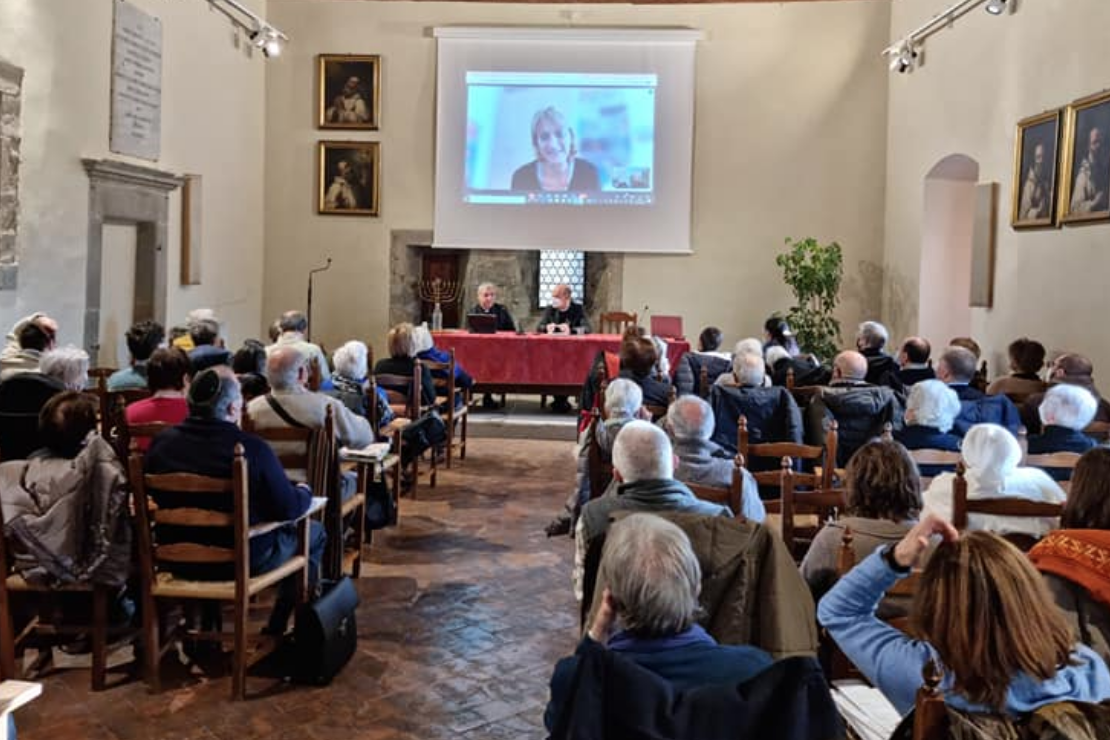INTERFAITH DIALOGUE – Israel and the Catholic Church, a reflection in Camaldoli

The year 2025 will mark the 60th anniversary of Nostra Aetate (Latin for “In Our Time,”) the document that revolutionized the Catholic Church’s approach to non-Christian religions with a specific section devoted to Judaism. Antisemitism, the document declared, has no theological basis. This pivotal moment in Vatican history will be the focus of the next edition of the Colloqui ebraico-cristiani (Jewish-Christian Dialogues), to be held December 4–8, 2024 at the Camaldoli community, a Benedictine monastery in Tuscany. The theme, “Israel and the Church,” offers an opportunity to revisit that historical moment and to reflect on current challenges –an increasingly urgent need. The meeting, the organizers acknowledged, comes at “a particularly complicated time, that has significantly affected Jewish-Christian dialogue.”
“These are difficult times, and for that reason, we must continue building on the good that has been achieved over the past decades,” explained to Pagine Ebraiche Marco Cassuto Morselli, president of the Federazione delle Amicizie Ebraico-Cristiane (Federation of Jewish-Christian Friendships). Morselli will open the meeting. During the following days, rabbis, priests, scholars and institutional representatives will participate in lectures, workshops and working groups. A panel titled “Dialogue as a path to peace” will include contributions from the President of Italian rabbis, Alfonso Arbib, and the UCEI President Noemi Di Segni, alongside Monsignor Gaetano Castello, from the Episcopal Commission for Ecumenism and Dialogue of the Italian Bishops’ Conference, and Alessandra Trotta, moderator of the Waldensian Table. “Camaldoli is a valuable experience that should be promoted as much as possible,” stressed Cassuto Morselli.
Publications
Under his guidance, Avinu, a journal dedicated to Jewish-Christian dialogue, was founded. Avinu is edited by Massimo Giuliani. “Last year, we presented the inaugural issue, and in December, the third issue will be published,” said Cassuto Morselli. Other editorial projects are having a significative impact. “A good example is the book series Il Melograno (The Pomegranate) by San Paolo publisher, which continues the work of the Bibbia dell’Amicizia (Friendship Bible.) In the context of widespread religious illiteracy in Italy, raising awareness of the Bible is a crucial task, and we are working to fill this gap.”
Similarly, Castelvecchi Publishers is working to translate into Italian a French bishops’ text aimed at deconstructing Christian-inspired anti-Judaism. An essay by Norman Tobias about Jules Isaac, the author of the seminal work Jesus and Israel, which demolished many antisemitic arguments, will also be presented at the Jewish Community of Rome at the end of October.
Beyond the framework of the Jewish-Christian Friendship, but still related to it, is the forthcoming essay Il nuovo rifiuto di Israele (The New Rejection of Israel), edited by Massimo De Angelis for the publisher Salomone Belforte, “featuring 25 contributions from various perspectives: Jews from the left, as well as Jews from the right.” Always with a constructive approach. Between Israel and the Church, according to the program of the colloquium, “there is no relationship of mutual estrangement, and contempt, enmity, hostility, and hatred have no legitimacy.”
